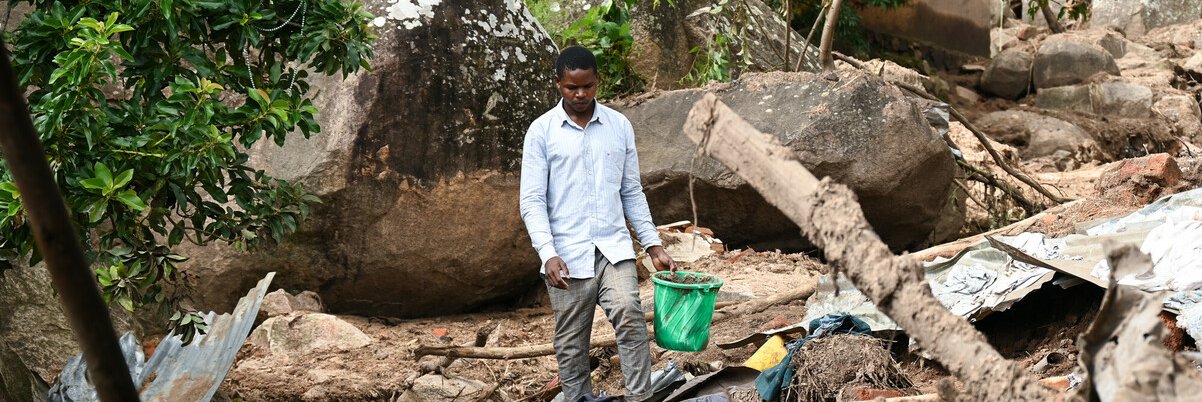
Evance Banda a survivor of Cyclone Freddy walks on the site of what used to be his family home in Blantyre, southern Malawi. Photo: Thoko Chikondi / Oxfam
For me the most pressing need is housing. I cannot return because my home is no more and the area is no longer safe.”
Evance Banda lost his home when Cyclone Freddy hit Malawi. His mother and two siblings were killed.
Cyclone Freddy
Cyclone Freddy battered southern Africa from 10-15 March 2023, severely damaging homes, crops, roads, schools and hospitals. More than two million people have been affected, with more than 600,000 people having to leave their homes.
How Oxfam is helping

Providing emergency cash
Cash assistance means that where markets are still functional, people affected by the cyclone can buy food and other essentials.

Protecting vulnerable people
In emergencies, vulnerable individuals can lack protection. Our teams help prevent sexual and physical abuse and other forms of harassment.

Supplying clean, safe water
The cyclone hit during an outbreak of cholera. We want to limit the spread of the outbreak, especially in crowded camps and homes.
A coordinated emergency response
The situation
Hundreds of schools are now occupied by displaced people, disrupting the education of almost 275,000 children. Photo: Thoko Chikondi / Oxfam
Schools disrupted
Schools across Malawi are now being used to accommodate people made homeless by Cyclone Freddy. Around 550 schools and almost 275,000 children have been affected.
Naotcha Primary School (pictured) has 4,510 children who are currently unable to attend their classes.
Evance's story
A portrait of 22-year-old Evance Banda a survivor of Cyclone Freddy taken at a camp in southern Malawi, 2023. Photo: Thoko Chikondi / Oxfam
I feel lucky to be alive, but life won’t be easy to survive without them.”
Evance Banda's mother and two siblings lost their lives in the flash floods and landslides that followed Cyclone Freddy.
Cyclone Freddy: counting the cost
More than 2.2 million people have been affected by Cyclone Freddy, with more than 650,000 displaced from their homes.
Almost 550 schools have been affected by the disaster, with 762 classrooms occupied by displaced people. Almost 750,000 children have had their education disrupted.
Thousands of people are now living in around 747 camps, some of them crowded, with limited food, safe water and sanitation.